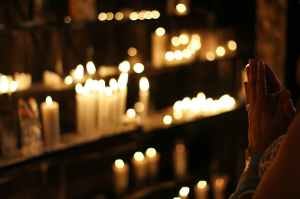
Introduction
In a world where stereotypes often shape our perceptions, Shirley Chisholm provided this profound statement, "We must reject not only the stereotypes that others have of us, but also those that we have of ourselves." This holds immense relevance, even for those who are practitioners of religion, such as Christians.
Chisholm's words carry a powerful message that can empower individuals to overcome self-imposed limitations and align their lives with their religious and ethical goals. How can your wisdom guide you toward spiritual growth and social impact? Here are a few thoughts about stereotypes and practical tips that might be employed to challenge them.

The Power of Stereotypes
External stereotypes in the context of religion can be particularly limiting. It's hard to believe, but some still believe women are less capable spiritual leaders than men. (See "Stereotype Threat and Its Effect on Christian Women in Secular Higher Education Administration," Kimberly Morgan, 2019 and "Theories Explaining Gender Differences in Religion," 2016) Not only do these assumptions rob women of expressing their own gifts and talents, it robs the Church of the rich contributions women can bring within multiple religious contexts. It's a stereotype that has denied women the opportunity to fully pursue their spiritual callings. (See "Five Reasons Why We Need More Female Leaders in the Church," Jonathan Rue, 2019).
Similarly, people of color often face assumptions about appropriateness as religious leaders, or their intellectual acumen as religious scholars. (See "The Origins of the Presumption of Black Stupidity," L. Scott Miller, JSTOR, 1995; and The Jim Crow Museum's article, "Negative Racial Stereotypes and Their Effect on Attitudes Toward Black Americans" Laura Green.)
Some people claim these assumptions no longer persist in today's context. Yet, how many Black, African descended women are serving as religious leaders within mainstream houses of worship today? How many of them are full-time, permanent lecturers or professors? If you are having a hard time naming one or two, then you are not alone!
Many of us have witnessed African descended women put in application after application, only to have the immediate needs of survival force her to leave the Religious Academy. (We use "Religious Academy" here to signal Higher education and the study of religion). For those who do not have a working spouse or some other income source, religious scholarship can seem like a far away dream, despite their other numerous achievements.
Internal Stereotypes in Religion
It's not only the beliefs held about us - it's also the internal stereotypes. These internal stereotypes are the beliefs we hold about ourselves within our religious context that may limit our spiritual growth. As self-imposed limitations, internal stereotypes can manifest as feelings of unworthiness, doubt, or inadequacy in our faith. They can obstruct our path towards achieving our religious goals and experiencing a deeper connection with our spirituality.

Practical Tip: To challenge these internal stereotypes, try daily self-reflection. Ask yourself why you may feel unworthy or inadequate in your faith journey. Challenge these thoughts with affirmations of your worthiness and purpose in your religious practice.
Embracing Authentic Faith
Embracing Chisholm's wisdom also means embracing an authentic expression of our faith. When we break free from societal or self-imposed religious stereotypes, we can explore our spirituality more deeply and authentically. It's amazing how many of us still navigate these stereotypes.
"Simply Let Me Define Your Womanhood"
I don't frequently wear dresses as I walk long distances and heels are not comfortable (or safe) at this point for me! Wearing suits is well received when I teach. However, I was working with a church where the senior pastor decided I could not sit in the pulpit unless I wore "a nice dress" or something "feminine." His wife and daughters wore "pants" or what Brits would call "trousers." Yet, he wanted me to be a standard bearer for his preferences regarding women's attire! Why must my body become a site of negotiation for any man to use in this way? (For additional perspectives on this, see "Colonizing Black Female Bodies Within Patriarchal Capitalism," Akeia Benard, 2016).
Overcoming Spiritual Obstacles
One common internal stereotype in religious practice is the feeling of spiritual inadequacy, often referred to as a "spiritual imposter syndrome." Many individuals struggle with feelings of not being pious enough, knowledgeable enough, or connected enough in their faith. Chisholm's quote encourages us to overcome this spiritual obstacle by rejecting the self-imposed stereotype of inadequacy and striving for spiritual growth with confidence.

Contributing to Positive Change in Faith Communities
Shirley Chisholm's wisdom extends beyond personal spiritual growth to impact faith communities. When individuals reject both external and internal religious stereotypes, they become catalysts for positive change within their faith communities. By ridding ourselves of the baggage of stereotype, we move closer to creating the type of faith that "moves mountains."
Practical Action: Consider volunteering, advocating for inclusion, or engaging in community initiatives that promote equality and understanding within your faith community. Small acts of kindness and education can lead to significant changes in how your community views and treats marginalized groups.
Conclusion
Shirley Chisholm's wisdom, "We must reject not only the stereotypes that others have of us, but also those that we have of ourselves," can provide us with hope and renewed courage. By applying her message to the context of faith, we can break free from limitations, embrace authentic spirituality, and contribute positively to our religious communities.
Chisholm's life stands as a testament to the power of authenticity and the potential for creating a more inclusive and compassionate religious landscape when we refuse to be confined by narrow expectations. Let us take her wisdom to heart as we embark on a journey of spiritual growth, both personally and collectively.
Dr CL Nash for the Misogynoir to Mishpat (M2M) Research Network © 2023


